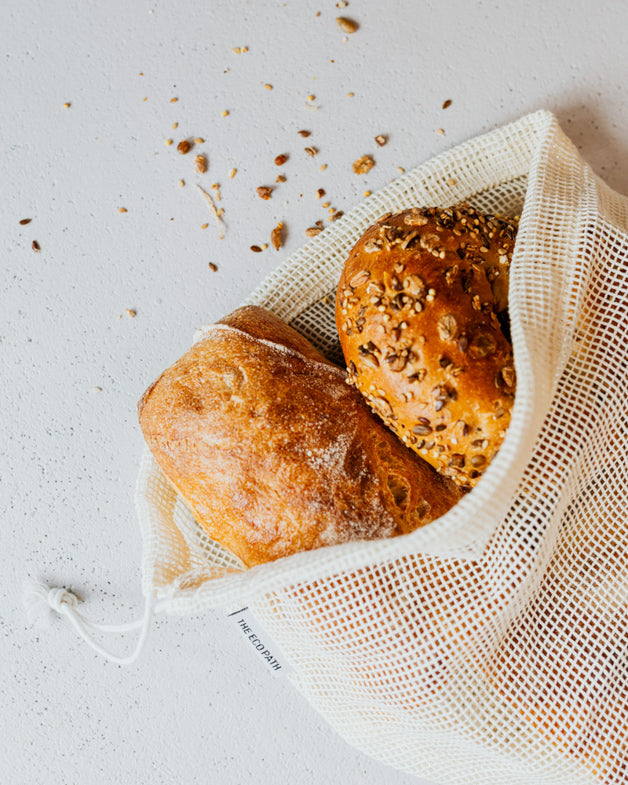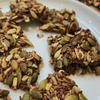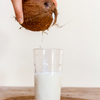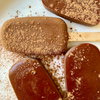The Truth About Gluten

Despite having access to so much information, gluten still one of the most feared and misunderstood components in our diets. With so much misinformed and conflicting material to read, it's no wonder so many of you are so confused about gluten and its role in your health.
A lot of you want to know if gluten is bad for you and if being gluten free is healthier. The answer to that isn't straight forward as each of have individual needs so as always, I want to provide you with what the evidence says. Knowledge is power, and with this knowledge, you can apply it to your life and see what role gluten has for you.
So let's break it down to some of the key points you need to know.
1. What is gluten?
Gluten is the main storage protein of wheat grains. Gluten is a complex mixture of hundreds proteins (called prolamins), with the two major in wheat being gliadin and glutenin. Similar proteins are exist as rye called secalin, hordein in barley, and avenins in oats. All of these proteins are collectively referred to as “gluten” (1).
2. What foods have gluten in them?
Grains that contain gluten are barley, durum, semolina, wheat, farina, kamut, rye and spelt grains. Any foods made with these grains like breads, cakes, wraps etc will therefore contain gluten (2). Gluten may also be 'hidden' in many products such as dressings, sauces, seasonings, marinades and ice-cream as a it can help create desirable flavours and textures (1).
3. What is Coeliac Disease (CD)?
CD is an autoimmune, inflammatory condition of the small intestine, that is caused by eating the protein gluten. This occurs in genetically susceptible individuals, approximately 1% of the population (3).
- Significant immune response and a complete destruction of your gut vili ensues after eating gluten. The destruction of vili (finger like projections along your gut lining) results in a decrease in the surface area available for nutrient, fluid and electrolyte absorption.
- Common symptoms of CD include diarrhoea, weakness, weight loss, iron deficiency related fatigue, failure to thrive in children, less commonly some experience issues with bone health, neurological disorders and skin concerns such as Dermatitis herpetiformis, characterised by surface blistering, burning and itchy rashes. Some people experience no symptoms at all!
- CD may be detected in blood tests that look for specific immune markers, but is officially diagnosed through a biopsy of the small intestine (2,4).
4. What is Non-Coeliac Gluten Sensitivity (NCGS) and is it real?
NCGS is real and it occurs in people who are not affected by CD or a wheat allergy. Anywhere between 0.6-6% of the population is affected (3).
- An immune response occurs along with disruption but not complete destruction of gut vili.
- Symptoms can occur anywhere between hours to days after eating gluten and usually disappear when gluten is removed. Symptoms vary greatly and include abdominal pain, bloating, bowel habit abnormalities, foggy head, headache, fatigue, joint and muscle pain, dermatitis, depression and anaemia
- Diagnosis: There are no laboratory markers specific to NCGS, making the differential diagnosis with other gluten-related disorders difficult. The only known antibodies observed in the NCGS patients are IgG antigliadin antibodies (IgG-AGA) which, unfortunately, occur in only a half of the patients.

5. Is there a gene for Coeliac Disease
Yes, there is. HLA-DQ2 or HLA-DQ8 are the genes that can be tested for if wanting to screen for CD or NCGS. These specific genes be present in 95% of CD and in 50% of NCGS individuals (3).
6. Should you avoid gluten and if you want to heal a leaky gut?
In short, yes.
In susceptible individuals, gluten causes the gate like structure in your gut wall, called tight junctions, to open-up. This is the result of your body releasing a special protein called zonulin that signal these tight junctions to open up. When gluten is absent from the diet, zonulin levels decrease which allows the immune system to calm down and your gut to begin healing. Following a strict gluten free diet when wanting to heal a leaky gut is vital as even the smallest amount of gluten will trigger a zonulin release (5).
7. What foods are gluten free?
Naturally gluten-free grains include amaranth, buckwheat, corn, millet, quinoa, rice, sesame, sorghum and teff. You can also find gluten free products made out or arrowroot, peas and legumes (i.e. besan) and tapioca flour, which are also naturally gluten-free (2).
A consideration when eating gluten free is that there can be considerable differences in the quality of the gluten-free alternative products and the nutrients they provide. To get a gluten free grain to behave in a light and fluffy way if for example you want to make bread, the natural whole grain may undergo processing at the expense of its natural protein and fat content and its original glycaemic index (how much they impact your blood sugar levels) (6).
To avoid falling into a diet that is full of highly refined gluten free products, choose whole grain where you can or at least more often than its processed form e.g. whole grain quinoa over quinoa made into pasta, multigrain varieties are a better option than white.
8. Are oats gluten free?
As mentioned above, oats contain a protein called avenin. Avenin contains a smaller amount of an amino acid called proline, which is higher in some of the other proteins (gliadin, glutenin secalin and hordein) that are within wheat, barley and rye. It is the difference in proline content which may be be why oats are less immune reactive compared to wheat, but may still be a problem in large quantities.
When buying oats, you may have seen gluten free varieties advertised. What this means is that oats have been farmed and milled away from gluten containing grains and have therefore not been contaminated with gluten. Pure and uncontaminated oats, made into products that contain less than 20 mg of gluten per kg of oats product, may be potentially incorporated as part of a gluten free diet (8). 10% of those with CD may still activate specific immune cells, so as a precaution it may be wise to avoid oats (7).
9. Is sourdough gluten free?
Several studies address the possibility of sourdough fermentation as a means to reduce the level of gluten proteins in bread. However, to accomplish this, stringent methods are often used that are sometimes impractical or unrealistic to be able to create products that are of comparable characteristics, quality and price as their gluten-containing counterparts. In summary, it is very likely the sourdough you buy still contains gluten.
Furthermore, lactic fermentation of wheat flour does not sufficiently prevent TG2 interaction (an enzyme interaction crucial in CD) with gluten or decrease available TG2 binding sites, compared to unfermented flour. So if you have CD, do not eat sourdough (9).
10. 'So, should I be eating gluten?' I hear you asking.
If you are still struggling to understand where gluten fits in your life check out Bloated to Body Confident . It's a course that helps bloating, IBS and SIBO sufferers live a normal life full of freedom and confidence, without food anxiety and digestive discomfort, with the complete step-by-step system to heal your gut from the root cause.
It covers the complete strategy for finding your root cause, comprehensive functional and diagnostic testing, personalised dietary advice, holistic support, effective treatments and sustainable solutions, empowering evidence-based information in a clear action plan.






